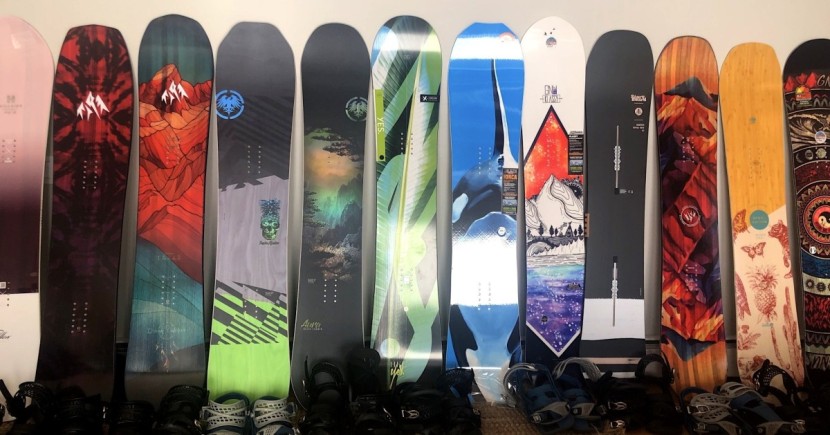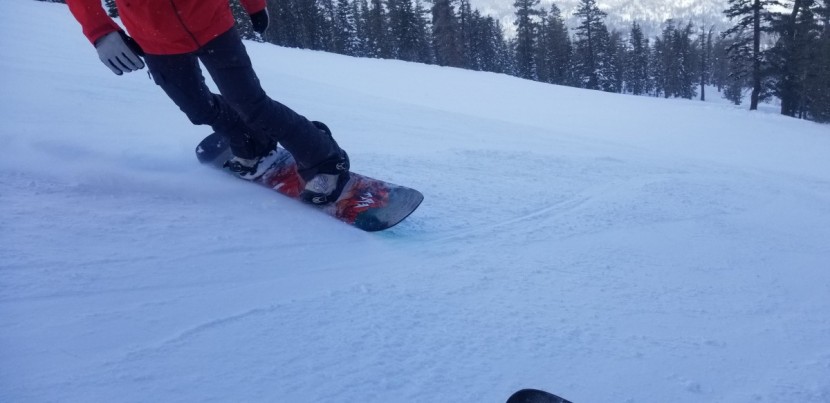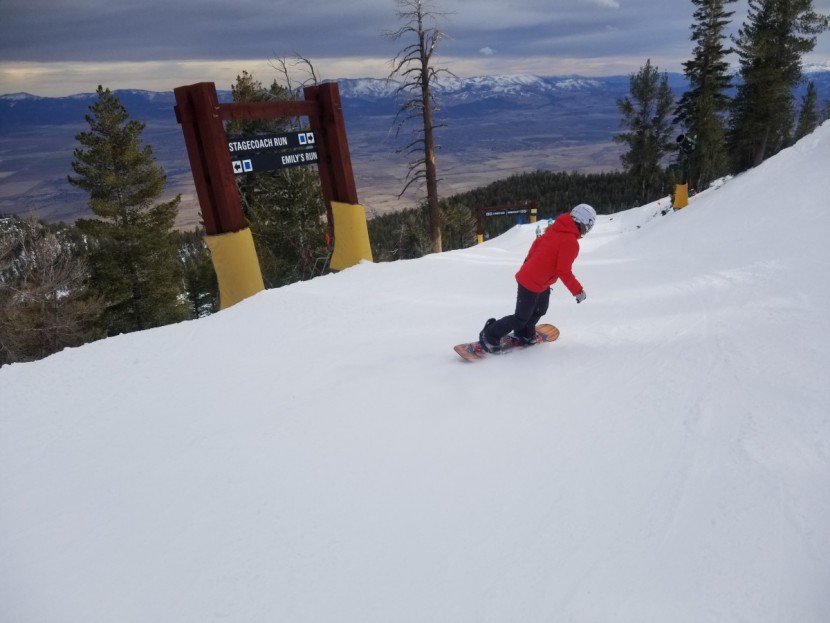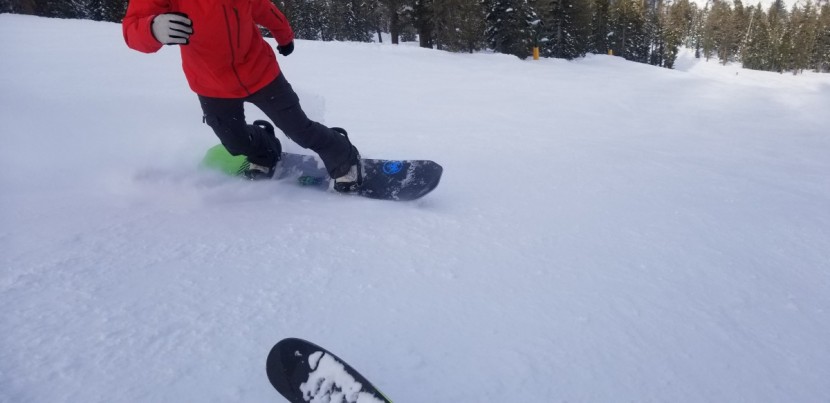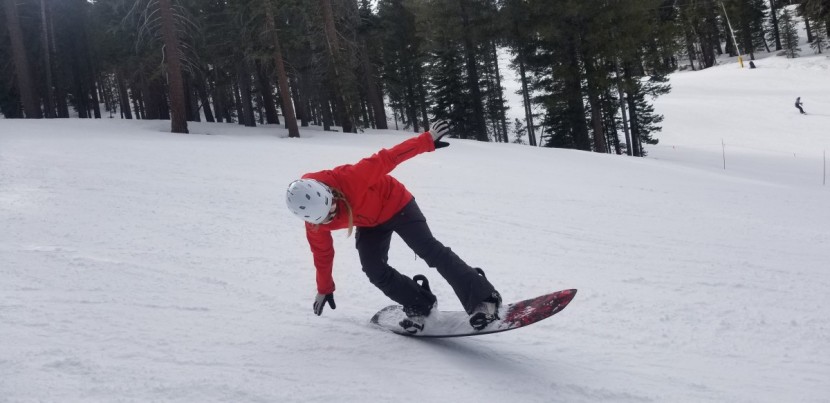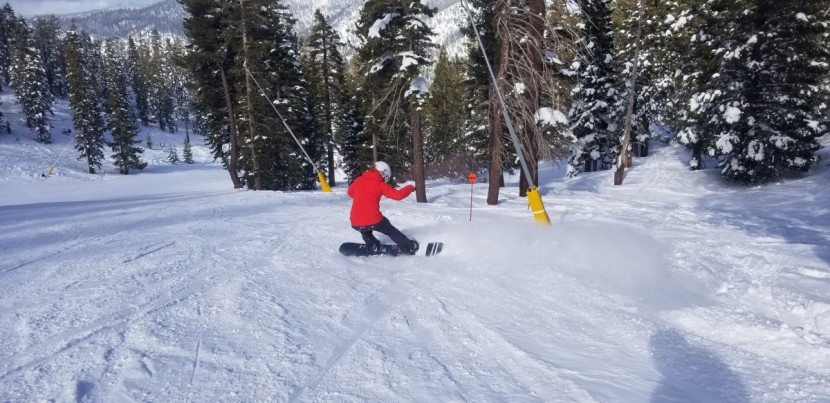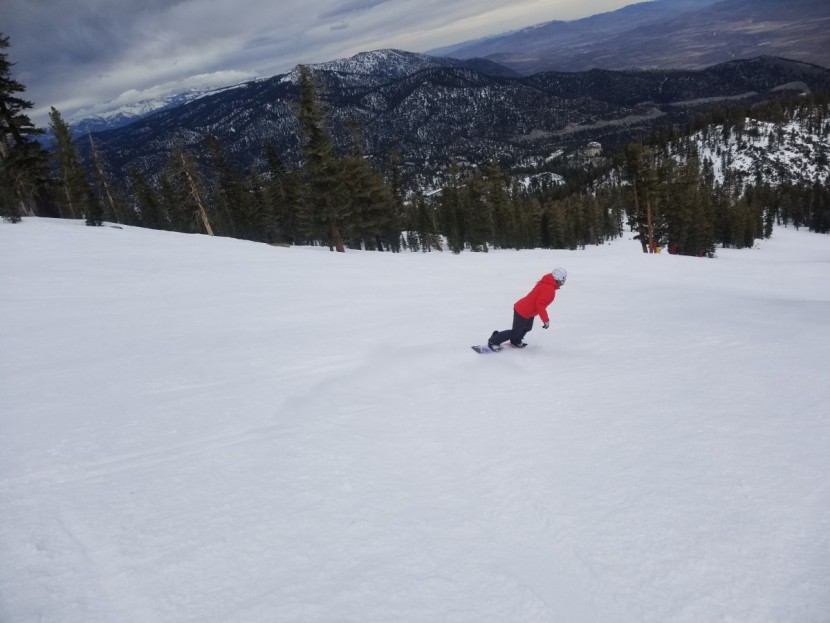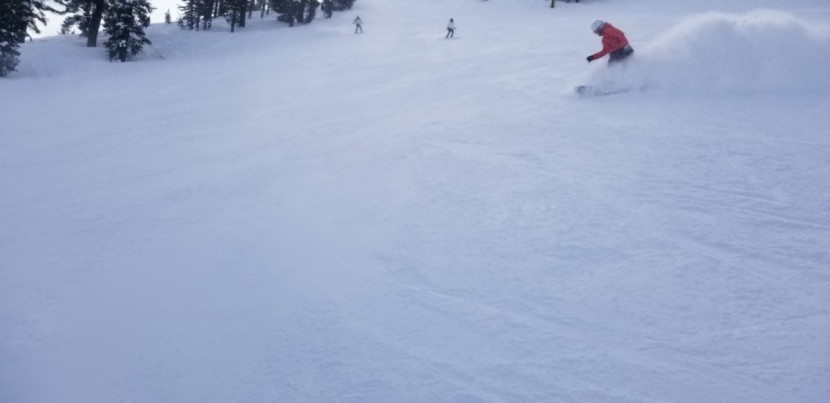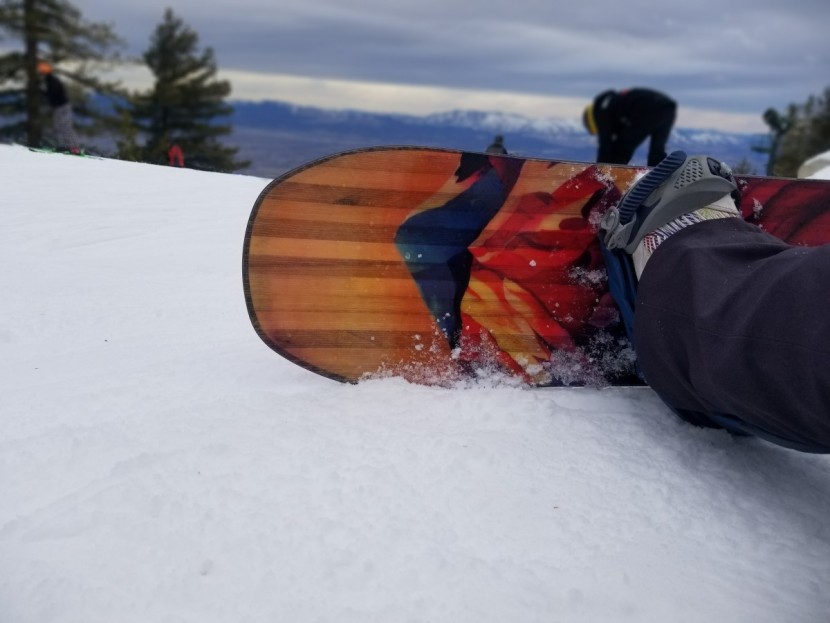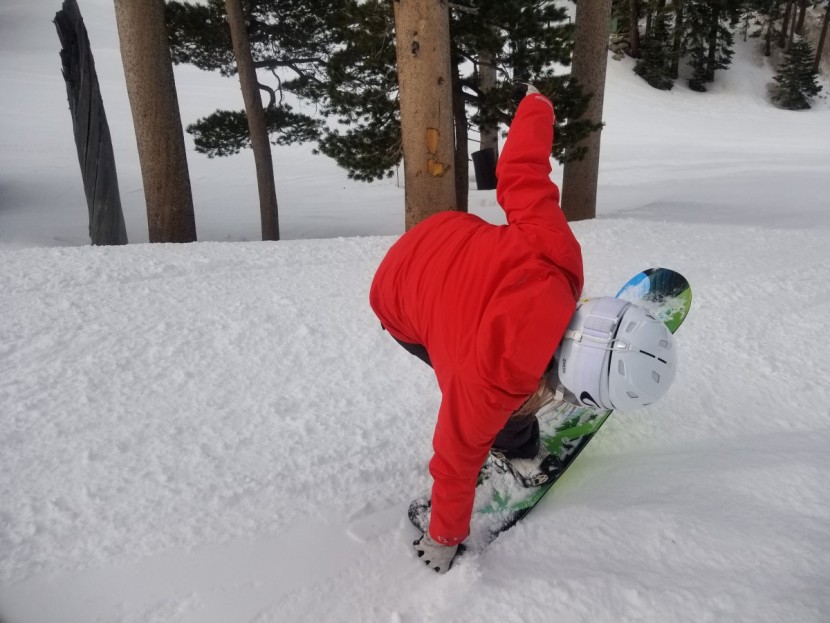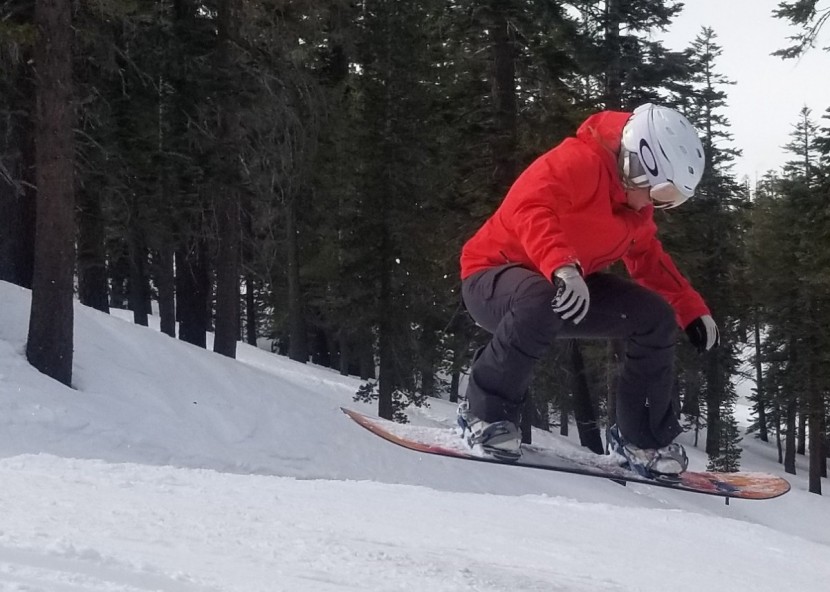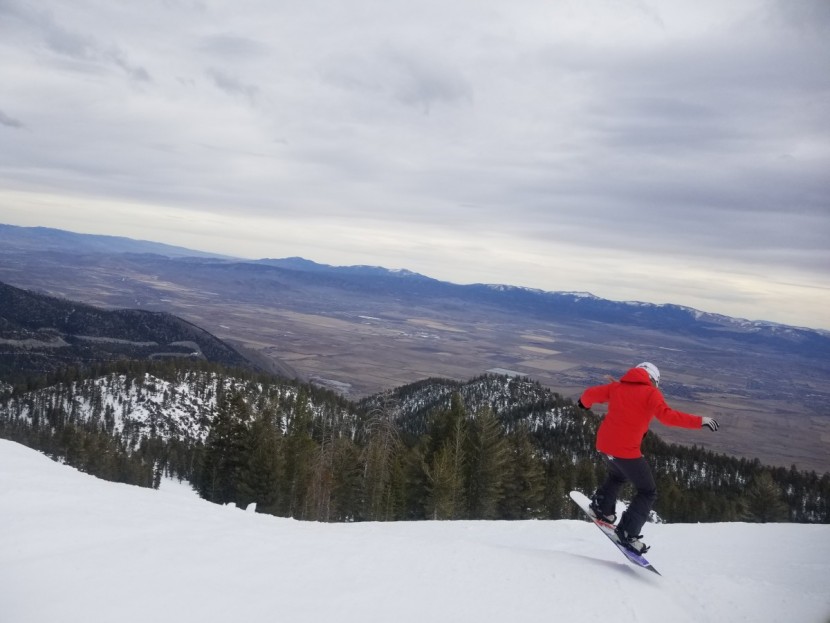To test out women's snowboards and see which one is really the best of the best, we extensively researched and compared dozens and dozens of different boards — some unisex, some female-specific — and picked out the 13 most promising models to buy and test side-by-side. We rode these boards across the entire mountain in almost every kind of snow condition imaginable, rating and scoring their performance in five weighted rating metrics.
Edge Hold
Our first and most important set of tests — edge hold — account for 25% of each board's overall score. For this test, we focused on how much each board bites into the snow, as losing an edge can lead to catastrophic results on steeper terrain or at higher speeds.
To measure and score this, we started by carving with each board on groomed intermediate terrain and moderate speeds, so the snow was hard packed, but not usually icy. We were looking at if the boards slipped when doing either heelside or toeside turns.
We then gradually increased the speed of our turns and moved on to steeper and steeper terrain, cutting boards as soon as they started slipping. Eventually, we ended up with the best boards on the steepest, iciest terrain we could find. We then alternated carving with them at racing speeds until we knew which boards have the best edge hold of them all.
Powder Performance
For our second set of tests, we went in search of the softest snow we could find — a stark contrast to the type of terrain we were riding for our edge hold test. Responsible for 20% of the total score, our power performance assessments dealt with how much float each board had on the fluffiest of snowfalls and how easy each one handled on the deepest days.
Testing for this was fairly easy — and definitely no fun at all. We simply waited for the biggest storm days, then rode each board through as many powder stashes as we could find. The best boards had tons of float, keeping your legs nice and fresh for a full day of riding, and handled well, providing a fun surfy feel through all the freshies we could find.
Stability
Moving back to the groomers, our next set of tests looked at the stability of each board at top speed, which also accounts for 20% of the overall score for each snowboard. To test this, we bombed the steepest groomers on the mountain with each snowboard to see how they handled at racing speeds.
We awarded the most points to boards that instilled a high sense of confidence when it came to carving at high speed. These boards entered and exited turns exceptionally smoothly, all while damping out unwanted vibrations from rough terrain and never showing any signs of a speed wobble. The worst boards delivered a disconcertingly bouncy ride if the snow was at all uneven and would develop instabilities when you really opened up the throttle, giving for an extremely unnerving ride.
Playfulness
Our next set of tests was a great way to calm our nerves after some of the upsettingly shaky rides at high speeds we had to undergo with the softer boards. For our playfulness metric, which also accounts for 20% of the final score for each all-mountain snowboard, we compared and scored how much fun each board is to ride, specifically looking at how well they flexed and maneuvered.
We did presses with each board, awarding points based on how easy it was to hold and how flexible the board is, and took each snowboard on all sorts of terrain. We rode them in boardercross courses, terrain parks, and hit all sorts of natural features in the trees, looking for the boards that were an absolute blast and let you jib and jerry to your heart's content.
Pop and Jumping
Our final metric, which constitutes the leftover 15% of each snowboard's total score focused on how each board did off the snow and how easy it is to catch some air.
We did ollie after ollie with these boards, comparing the effort required to reach significant height, as well as launched off lips, jumps, and kickers to see just how much spring each board has. Additionally, we also looked at how each board did with landings — whether you could easily stomp them or if they tended to be overly jarring.
Conclusion
Hopefully, this article has given you a better understanding of exactly what we did to test these boards and why we scored them how we did. If you are on the hunt for the perfect all-mountain women's snowboard, then you should also make sure that you pay close attention to the performance of the boards in the metrics that you care most about. Our weightings correspond to a true all-mountain rider, but a park rider is primarily going to want to look at a board's performance in our pop and playfulness metrics, while a big mountain boarder will be far more interested in our edge hold and stability metrics.

